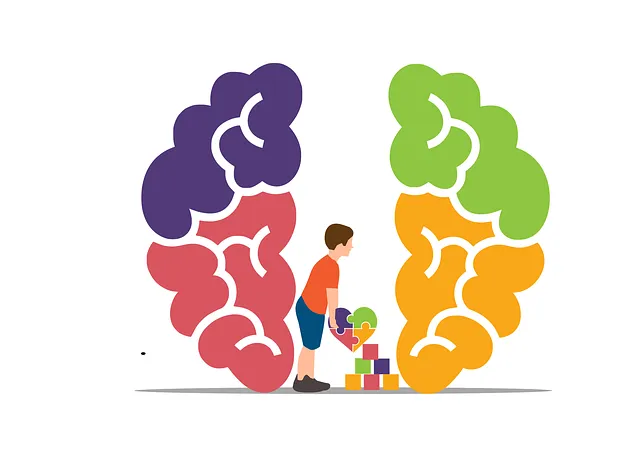Community Outreach Programs by Kaiser Permanente behavioral health phone number Boulder focus on mental wellness, targeting underserved populations with culturally sensitive care. They educate on mental health, conduct risk assessments, and provide tailored support through trained professionals, empowering open conversations about behavioral health. These programs measure success through KPIs and community well-being surveys, ensuring continuous improvement based on data.
Community outreach programs play a vital role in fostering connection and enhancing well-being within local communities. This article explores strategies for implementing successful initiatives, with a focus on mental health support. We delve into understanding community needs, utilizing resources like the Kaiser Permanente Behavioral Health Phone Number Boulder, and measuring program impact. By adopting effective outreach strategies, we can revolutionize access to care, ensuring that every individual has the opportunity to thrive.
- Understanding Community Outreach Programs
- Kaiser Permanente Behavioral Health Phone Number Boulder: A Resource
- Implementing Effective Outreach Strategies
- Measuring Success and Impact of Community Programs
Understanding Community Outreach Programs

Community Outreach Programs are designed to bridge the gap between healthcare services and diverse communities, often focusing on behavioral health and mental wellness. These programs play a pivotal role in promoting accessibility, especially for underserved populations. By utilizing resources like the Kaiser Permanente behavioral health phone number Boulder, community initiatives can connect individuals with much-needed support.
The implementation of such programs requires a deep understanding of cultural sensitivity in mental healthcare practice. Incorporating Mental Health Education Programs Design tailored to various communities ensures that services are culturally competent and accessible. Moreover, conducting thorough risk assessments for mental health professionals is essential to navigate challenges and ensure the safety of both practitioners and clients, fostering an inclusive environment that addresses unique community needs without compromising quality care.
Kaiser Permanente Behavioral Health Phone Number Boulder: A Resource

For those seeking support for their mental health and well-being, Kaiser Permanente Behavioral Health Phone Number Boulder stands as a vital resource in the community. This dedicated line offers accessible, immediate assistance to individuals across the region, promoting a key aspect of Kaiser Permanente’s comprehensive healthcare philosophy – Mind Over Matter Principles. Trained professionals answer calls, providing guidance and resources tailored to specific needs, whether that be for stress management, anxiety relief, or more intensive support requiring referral to specialized services.
The phone number serves as an entry point into a range of services, including Social Skills Training and Communication Strategies, designed to empower individuals with effective coping mechanisms and enhanced interpersonal abilities. By embracing this initiative, Kaiser Permanente ensures that the Boulder community has direct access to essential behavioral health services, fostering open conversations about mental wellness and encouraging proactive care.
Implementing Effective Outreach Strategies

Implementing effective community outreach strategies is key to connecting with individuals who may be hesitant to seek behavioral health support. Organizations like Kaiser Permanente Boulder prioritize public awareness campaigns that focus on promoting self-care practices and stress reduction methods. By utilizing various communication channels, including phone hotlines, online resources, and local events, they ensure their services are accessible and tailored to the unique needs of different communities.
For instance, the Kaiser Permanente behavioral health phone number Boulder provides a direct line for individuals seeking immediate support or information about available programs. This strategy not only offers convenience but also creates a sense of accessibility, encouraging folks to take that first step towards self-improvement. Additionally, integrating these initiatives with community events fosters open dialogue and helps dispel misconceptions about behavioral health services.
Measuring Success and Impact of Community Programs

Measuring the success and impact of community outreach programs is a critical step in understanding their long-term value. Organizations like Kaiser Permanente have recognized the importance of behavioral health services, offering phone numbers dedicated to supporting individuals seeking help with mental illness. In Boulder, these initiatives often focus on mindfulness meditation as a tool for emotional healing processes. By setting clear goals and implementing measurable strategies, programs can demonstrate their effectiveness. This involves tracking key performance indicators (KPIs) such as the number of participants, engagement rates, and improvements in identified areas like reducing stigma associated with mental illness.
Regular evaluation allows organizations to adapt their approaches, ensuring resources are allocated effectively. For instance, a program’s impact on community well-being can be assessed through surveys measuring changes in mental health perceptions and behavioral patterns. This data-driven approach enables the identification of successful interventions, fostering continuous improvement and maximizing the positive outcomes of community outreach programs.
Community outreach programs, such as those offered by Kaiser Permanente behavioral health phone numbers in Boulder, play a pivotal role in enhancing access to mental health services. By implementing effective strategies and measuring their impact, organizations can significantly improve community well-being. The success of these initiatives lies in fostering connections, understanding local needs, and leveraging resources like the Kaiser Permanente hotline in Boulder to provide targeted support. This holistic approach ensures that communities are equipped with the tools and care they need to thrive.






